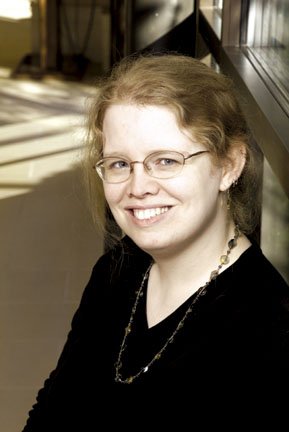Excerpts from the interview:
“One of the really neat things about fantasy, science fiction, and horror as a conglomerate genre is that the world is as much a part of the story as the characters and the plot. (It's more evocative to call it 'world' than 'setting.') I create like a magpie, with bright shiny things, or little pretty pieces of trivia. The catacombs of the city in Mélusine came from when I was 15 and spent three weeks in Vienna. When they were excavating their subway stations they found a medieval chapel, so they put a window in the subway station -- if you're going by, you can just look and there's this little medieval chapel. Stuff like that.
“When you're world-building, the popular culture -- what kind of music people listen to, what they read, what kind of card games they play -- isn't necessarily connected to the plot. You should be willing to let some of those details be throwaways, but you have to expand the energy learning it. The real world is big, it's messy; things don't fit together.”
*
 “I find reality very boring. I have never had an idea for a story that did not somehow involve the supernatural, the science-fictional, or the fantastic in some way. But psychological realism is what I'm here for. That's what I do: if a story is going to provide anything more valuable than a couple hours' entertainment, it has to be psychologically true.
“I find reality very boring. I have never had an idea for a story that did not somehow involve the supernatural, the science-fictional, or the fantastic in some way. But psychological realism is what I'm here for. That's what I do: if a story is going to provide anything more valuable than a couple hours' entertainment, it has to be psychologically true.
“The received wisdom is that readers have to identify with the protagonist, which means people write these cardboard cutouts readers can project themselves onto. But that's not how it works! Elizabeth Bear and I were talking about this. There's a character she identifies with strongly, and it's not because he's a cardboard cutout; it's because he has very particular characteristics that she recognizes, and her identification with him is strong because he's strange, not because he's normal. He's interesting because he's not bland. Who is going to want to identify with someone who has no interesting characteristics at all? Sherlock Holmes is essentially an assemblage of quirks (the cocaine, the violin), but that's why he's an enduring character, not because we can identify with him.”
*
“Elizabeth Bear and I met online. She was working on books about William Shakespeare and Christopher Marlowe, and she said something in her blog about wanting someone who knew the period, to not exactly fact-check but to look at what she'd done. We talked back and forth about that, and then about other things, and we were e-mailing daily. We started collaborating on a book that hasn't found a publisher yet, a YA mystery called The Cobbler's Boy, about Christopher Marlowe when he was a boy (he was a cobbler's son) which we started writing because I made some silly joke about Kit Marlowe, Boy Detective. She said, 'We could write that,' and then we did!”
*
 “I started working on the world of the Mélusine series in 1993, which is one of the reasons I'm going to be very grateful to finish the fourth book! After that I don't have a contract and I don't know exactly what I'm going to do. What I'm thinking about is the story of the first elvish-human integrated baseball team, because I think that would be so much fun to write!”
“I started working on the world of the Mélusine series in 1993, which is one of the reasons I'm going to be very grateful to finish the fourth book! After that I don't have a contract and I don't know exactly what I'm going to do. What I'm thinking about is the story of the first elvish-human integrated baseball team, because I think that would be so much fun to write!”



